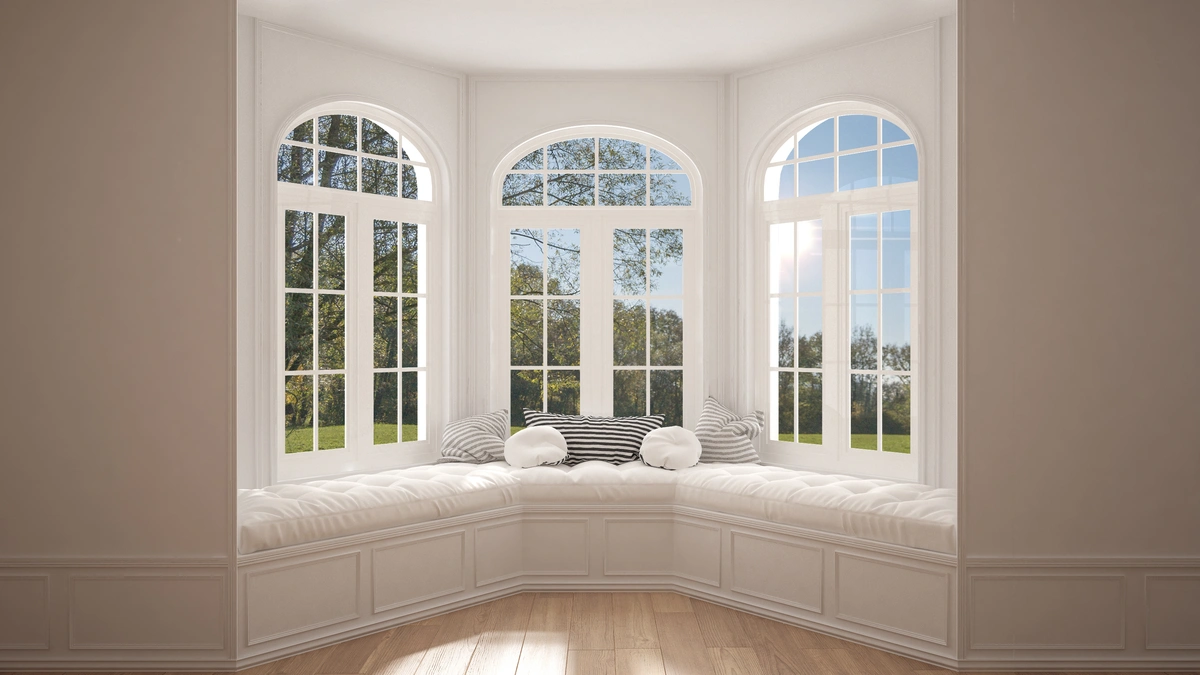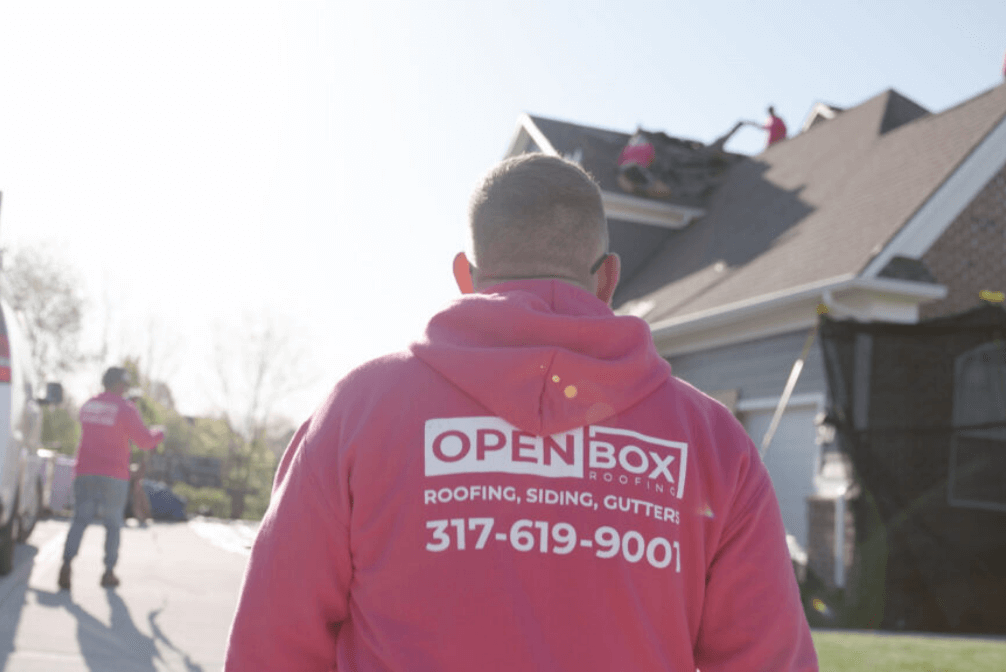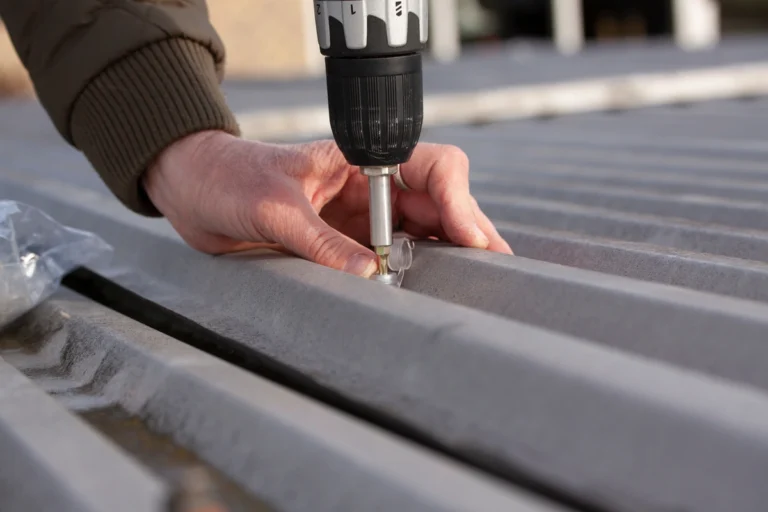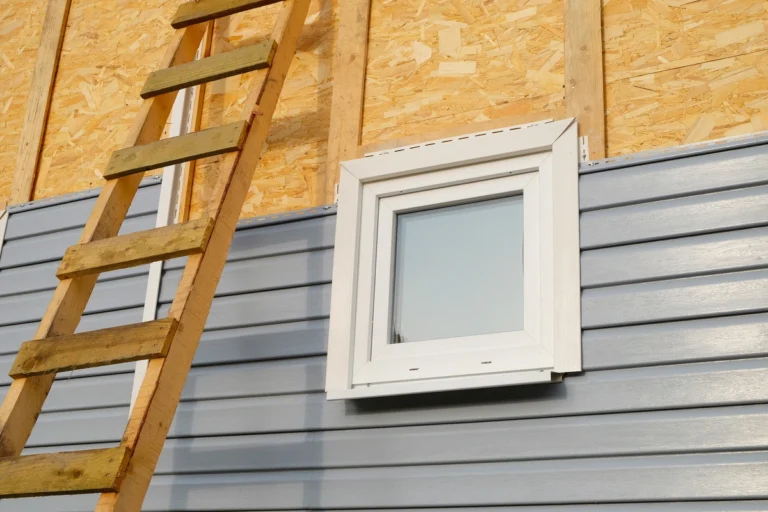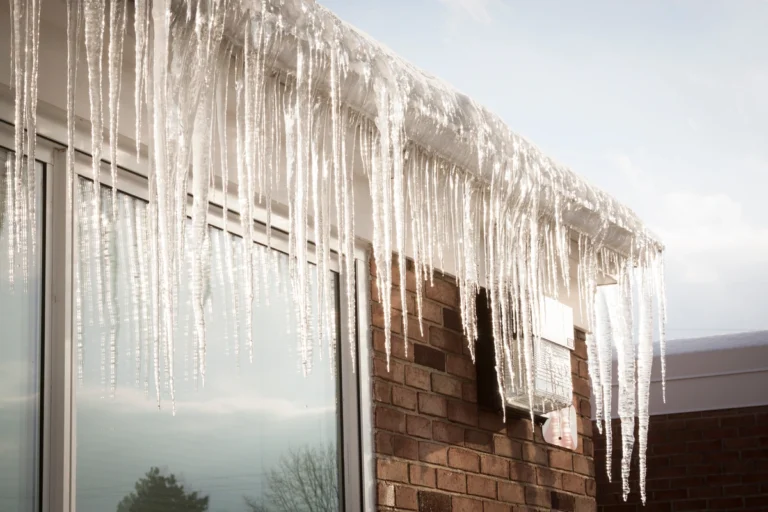Windows are not just functional elements of a building; they also significantly contribute to its aesthetic appeal and energy efficiency. Choosing the right type of windows for your home or office can be a crucial decision, impacting both comfort and sustainability.
Today, we’ll explore various aspects of windows, including:
- Signs indicating the need for replacement
- Different types of windows available
- Factors to consider when choosing
- Installation costs
- Affordability tips
- The importance of professional installation
- Maintenance guidelines for keeping your windows in top condition
Signs That You Should Replace Your Windows
Windows play a vital role in maintaining the comfort and energy efficiency of a building. Over time, they can wear out or become damaged, leading to several signs that indicate the need for replacement:
- Drafts and Air Leaks: If you feel drafts or notice air leaks around your windows, it could indicate that the seals have deteriorated, compromising energy efficiency.
- Increased Energy Bills: Older or inefficient windows may contribute to higher energy bills as they allow heat to escape during the winter and cool air to seep out during the summer.
- Difficulty Opening or Closing: Windows that are hard to open or close may have warped frames or damaged mechanisms, making them less functional and potentially unsafe.
- Visible Damage: Cracks, rot, or decay on the window frames or glass are clear indicators that replacement is necessary for both aesthetic and structural reasons.
- Noise Reduction: If you live in a noisy area and notice that your windows offer little sound insulation, upgrading to double or triple-pane windows can significantly reduce outside noise.
- Condensation Between Panes: Moisture buildup between the glass panes indicates seal failure, compromising the insulating properties of the window.
- Faded or Discolored Frames: UV exposure can cause frames to fade or discolor over time, detracting from the appearance of your home and potentially indicating structural weakness.
8 Different Types of Windows
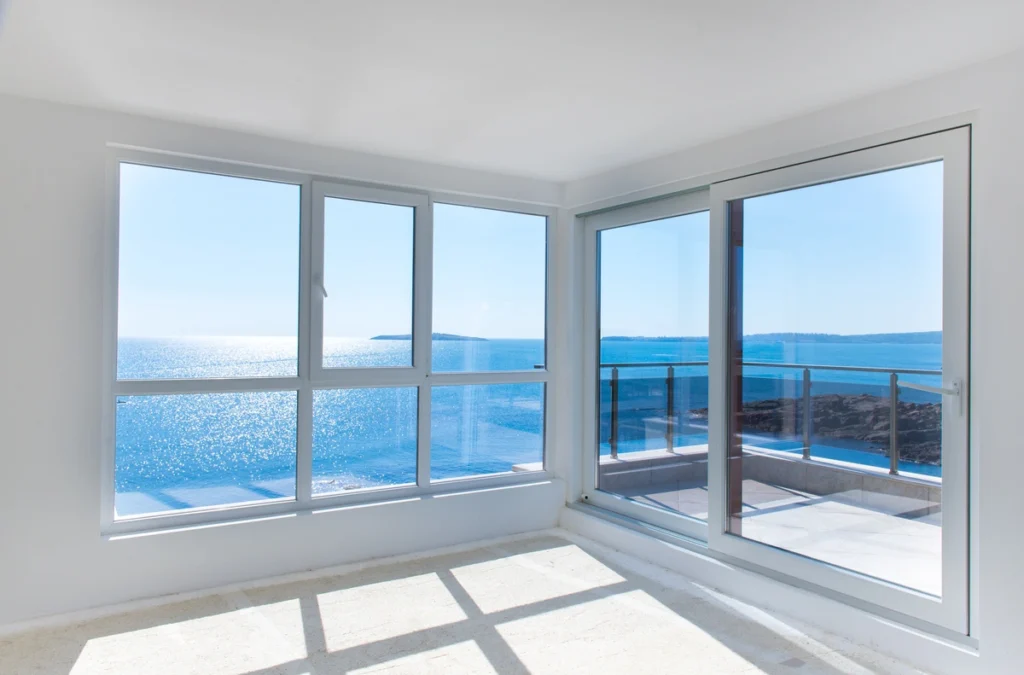
When it comes to choosing new windows, there are numerous options available, each with its own unique features and benefits. Here are some of the most common types of windows:
1) Single-Hung Windows:
These windows consist of two sashes, with only the bottom sash operable by sliding vertically. The top sash is fixed and does not move.
2) Double-Hung Windows:
Similar to single-hung windows, but both the top and bottom sashes are operable, allowing for better ventilation and ease of cleaning.
3) Casement Windows:
Hinged on one side, casement windows open outward using a crank mechanism. They provide excellent ventilation and a tight seal when closed.
4) Awning Windows:
Similar to casement windows but hinged at the top, awning windows open outward from the bottom, allowing for ventilation even during light rain.
5) Sliding Windows:
Sliding windows operate horizontally on tracks, with one or both sashes sliding open. They are ideal for spaces where a projecting window could interfere with outdoor areas.
6) Picture Windows:
Fixed windows that do not open, picture windows are designed to provide unobstructed views and ample natural light.
7) Bay and Bow Windows:
These windows protrude outward from the wall, creating additional interior space and enhancing the architectural appeal of a home.
8) Skylights:
Installed in the roof, skylights allow natural light to enter a room from above, providing an open and airy atmosphere.
How to Choose the Right Type of Window for You
Choosing the right type of window involves considering several factors, including:
- Architectural Style: Select windows that complement the architectural style of your home or building to maintain visual harmony.
- Functionality: Consider how you want your windows to operate and whether you prioritize ventilation, ease of cleaning, or unobstructed views.
- Energy Efficiency: Look for windows with high energy efficiency ratings, such as those with multiple panes, low-emissivity coatings, and insulated frames, to reduce heating and cooling costs.
- Budget: Determine your budget for window replacement and explore options that offer the best combination of quality and affordability.
- Maintenance Requirements: Consider the maintenance requirements of different window types, including cleaning, painting, and sealing, to ensure they fit your lifestyle and maintenance preferences.
- Local Climate: Take into account the climate in your area, including temperature extremes, humidity levels, and exposure to wind and precipitation, to choose windows that can withstand environmental factors.
- Noise Reduction: If noise is a concern, opt for windows with soundproofing features, such as double or triple-pane glass and insulated frames.
The Cost of Installing New Windows
The cost of installing new windows can vary widely depending on factors such as the type of windows, the size of the project, and the complexity of the installation. On average, homeowners can expect to pay between $300 and $1,000 per window for standard replacement windows, with prices increasing for custom or high-end options. Additional costs may include labor fees, permits, and disposal of old windows.
Tips for Affording New Window Installation
While window replacement can be a significant investment, there are several ways to make it more affordable:
Explore Financing Options:
Many window companies offer financing plans or loans with favorable terms to help homeowners spread out the cost of replacement over time.
Take Advantage of Tax Credits and Rebates:
Look for government incentives, such as tax credits or rebates, available for energy-efficient home improvements, including window replacement.
Consider DIY Installation:
If you’re handy and have the necessary skills and tools, you may be able to save money by installing the windows yourself. However, it’s essential to weigh the potential savings against the risk of improper installation and future issues.
Compare Multiple Quotes:
Shop around and obtain quotes from multiple window companies to ensure you’re getting the best value for your money. Be sure to compare not only the price but also the quality of materials, warranty coverage, and reputation of the installer.
Prioritize Energy Efficiency:
Investing in energy-efficient windows may cost more upfront but can lead to long-term savings on heating and cooling costs, making them a worthwhile investment in the long run.
Why You Should Always Hire a Professional
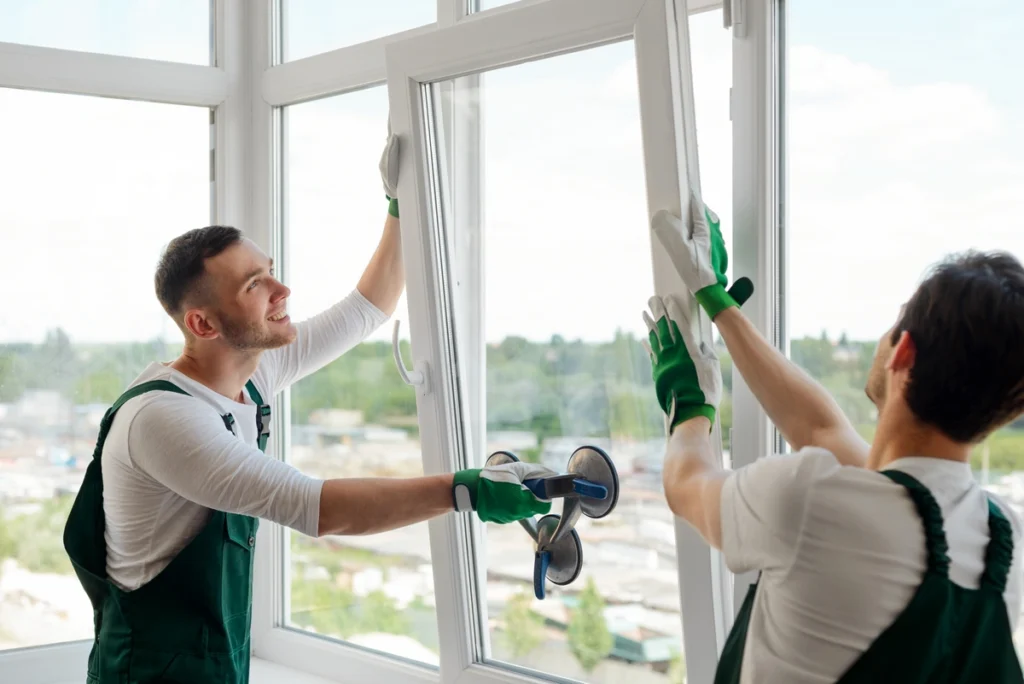
While some homeowners may consider DIY window installation to save money, hiring a professional installer offers several benefits:
- Expertise and Experience: Professional installers have the knowledge, skills, and experience to ensure that windows are installed correctly and according to industry best practices.
- Warranty Coverage: Many window manufacturers require professional installation to validate warranty coverage, protecting you against defects and issues that may arise after installation.
- Time and Convenience: Professional installers can complete the job quickly and efficiently, minimizing disruption to your daily routine and ensuring that the project is completed to your satisfaction.
- Safety: Installing windows can be physically demanding and potentially dangerous work, particularly for windows located on upper floors or in hard-to-reach areas. Professional installers have the training and equipment to perform the job safely.
- Code Compliance: Professional installers are familiar with local building codes and regulations governing window installation, ensuring that the work is done correctly and up to code.
How to Take Care of Your New Windows
Once your new windows are installed, proper maintenance is essential to ensure they remain in optimal condition for years to come. Here are some tips for taking care of your windows:
- Regular Cleaning: Clean your windows regularly using a mild detergent and water solution to remove dirt, dust, and grime. Avoid using abrasive cleaners or tools that could scratch the glass or damage the frames.
- Inspect for Damage: Periodically inspect your windows for signs of damage, such as cracks, leaks, or rotting wood. Address any issues promptly to prevent further damage and maintain the integrity of the windows.
- Lubricate Moving Parts: If you have windows with moving parts, such as casement or sliding windows, lubricate hinges, tracks, and other mechanisms annually to ensure smooth operation.
- Seal Gaps and Cracks: Check the seals around your windows regularly and reseal any gaps or cracks to prevent air leaks and moisture infiltration.
- Trim Vegetation: Keep vegetation trimmed away from your windows to prevent damage from branches, leaves, and pests.
- Protect from Harsh Weather: Install storm windows or shutters to protect your windows from extreme weather conditions, such as hurricanes or severe storms.
- Schedule Professional Inspections: Consider scheduling annual inspections by a professional window installer to identify any issues early and ensure that your windows are well-maintained.
By following these maintenance tips and investing in professional installation when needed, you can enjoy the benefits of beautiful, functional windows that enhance the comfort, energy efficiency, and value of your home for years to come.
Get Your New Windows Installed Perfectly!
Windows are more than just openings in a wall—they are essential components of a building’s design, functionality, and energy performance. With proper care and attention, your windows will continue to provide comfort, beauty, and efficiency for years to come. But if they need a helping hand? Call on Open Box Roofing for expert window installation and consultations that will help your house feel like a home.
